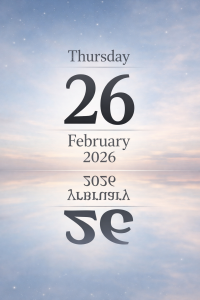Everything for a reason they but it’s not often you get someone who agrees with this.
Rewind to 48 hours ago and I was in that weird place you get to when you’ve been ill for a while; so you’re tired but you know you can’t sleep, there’s nothing on the TV and you can’t focus on a book so decide to go onto an online chat room and wind down.
As usual, as soon as any female newbie enters the room, cue a minimum of 16 chat boxes popping up. These just list an age, location and profile name, so it really can be pot luck who you end up with, especially on a site that regularly hangs, throws you off and if you get back on, you never seem to be able to find the same people.
Once you’ve got rid of the inevitable 18 year olds and culled all those with a somewhat unattractive name, you’re generally left with a list of about 7 names and then have to reduce it down to someone who can actually hold a conversation and doesn’t just want to know what you’re wearing…
On Wednesday, I ended up having a really interesting convo with someone who had picked the title to this song as their name for the night. My initial thought was to check that they were OK, and we ended up having quite a long convo which resumed early morning the following day.
I’ve stopped questioning why some people make you comfortable and feel themselves able to open up to a stranger. Perhaps it’s because neither of you has any skin in the game and, given that the other person is open to debate, you can share emotions and know that you won’t be judged for it.
Turns out that the lyrics of this song don’t lie too far from their current state of mind, depicting a person who hides their sadness behind a façade of happiness, much like a clown who masks their true emotions behind a painted smile.
Here are some key themes and meanings within the song:
- Facade of Happiness: The song’s protagonist presents a cheerful exterior to the world while internally suffering from heartache. The lyrics draw a parallel between the singer’s experience and the image of a clown, who is expected to bring joy to others despite personal sorrow.
- Unrequited Love: The underlying cause of the protagonist’s sadness is unrequited love. The singer feels deep pain from a romantic relationship that is not reciprocated, yet they pretend to be fine and put on a brave face in public.
- Loneliness and Despair: Despite the outward appearance of joy, the protagonist feels isolated and miserable. The metaphor of the clown’s tears captures the poignant contrast between outward appearances and inner reality.
- Emotional Mask: The song emphasizes the struggle of hiding true emotions. The protagonist’s performance as a “clown” serves as a coping mechanism to shield themselves from further emotional exposure and vulnerability.
The song’s powerful lyrics and melancholic tone resonate with anyone who has experienced the pain of hiding their true emotions behind a mask of happiness. Their life choices, but I am sad for them…
Listening to this track again after a long time has a few resonances:
Like a clown I appear to be glad
I Miss you Pooh Bear.



